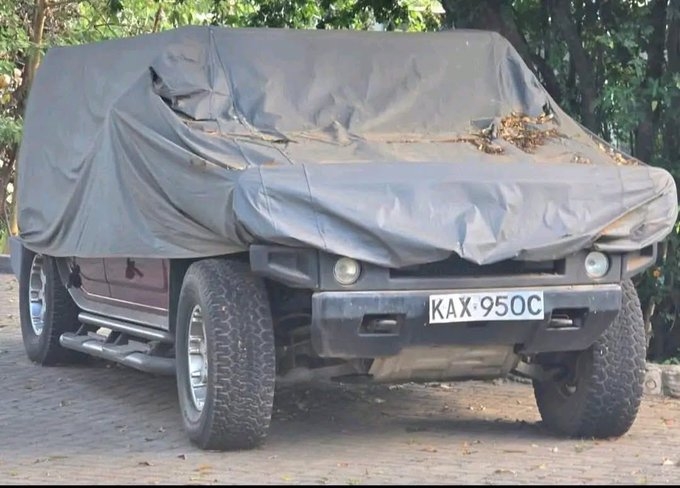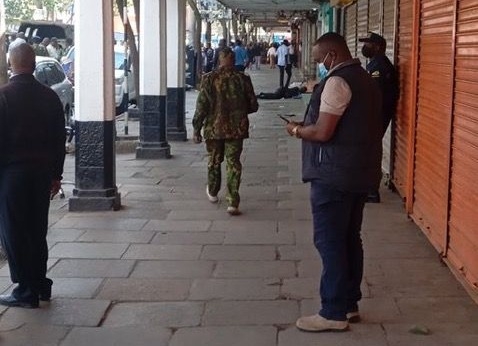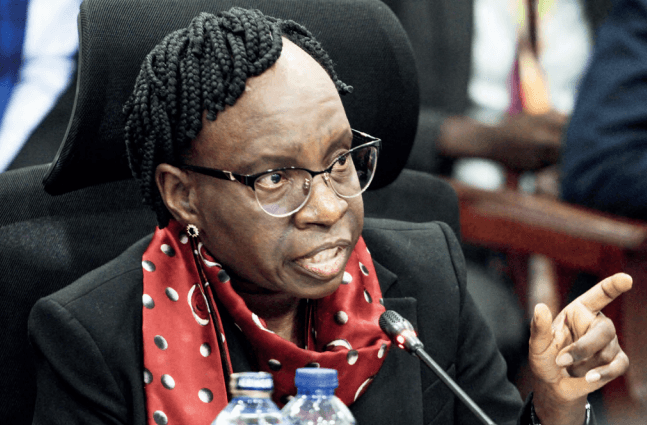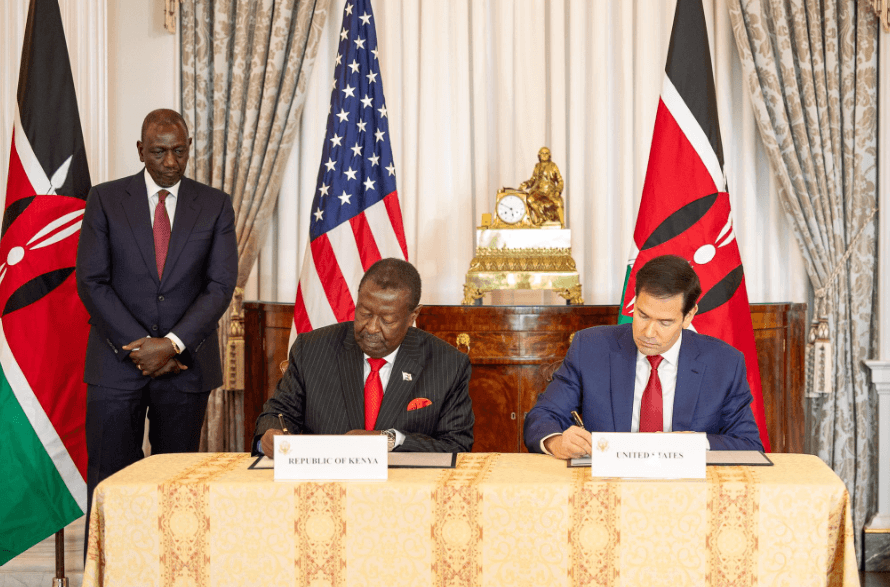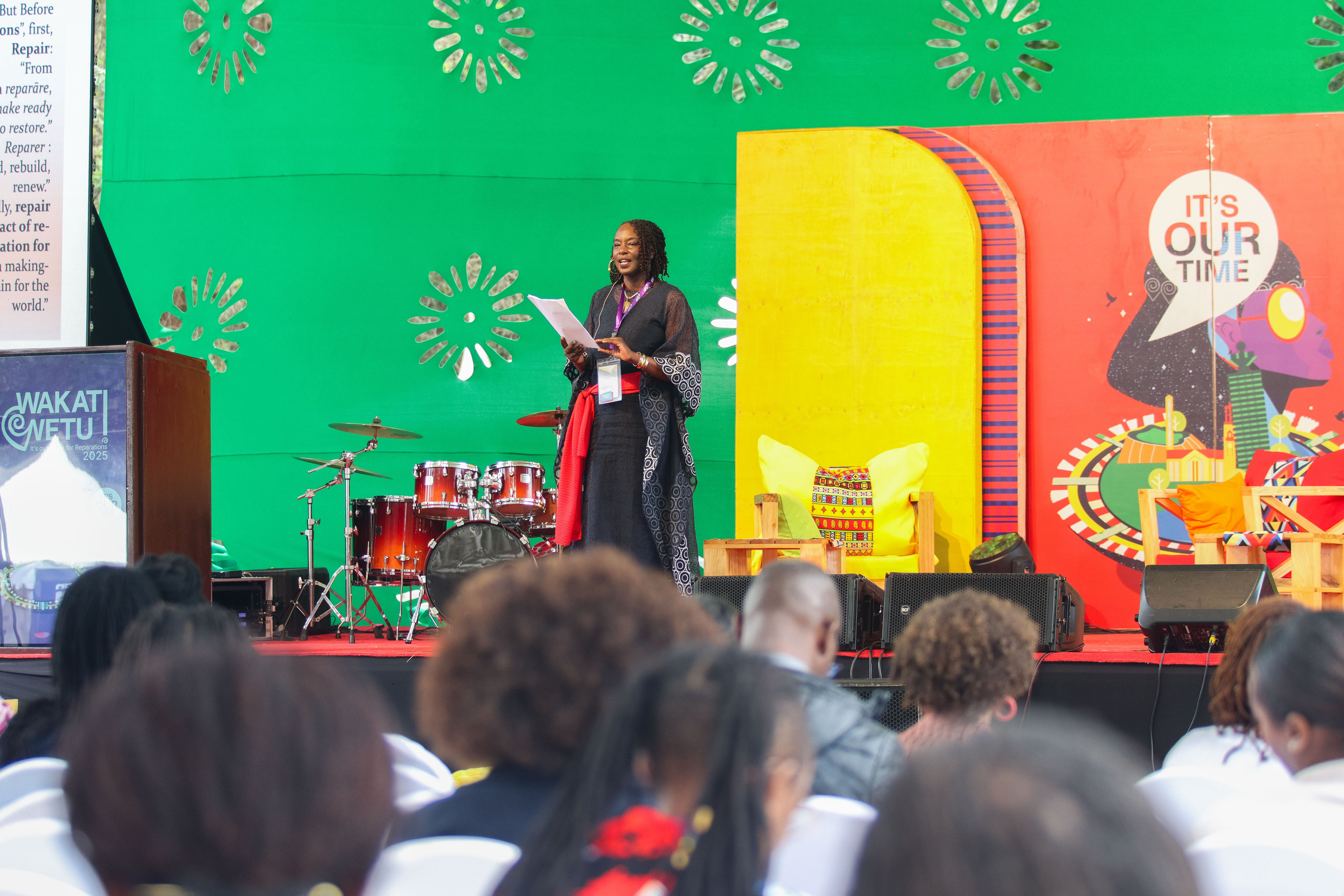 Keynote speaker and award-winning author Yvonne Adhiambo Owuor speaks during the Wakati Wetu Festivals on October 22, 2025. /HANDOUT
Keynote speaker and award-winning author Yvonne Adhiambo Owuor speaks during the Wakati Wetu Festivals on October 22, 2025. /HANDOUT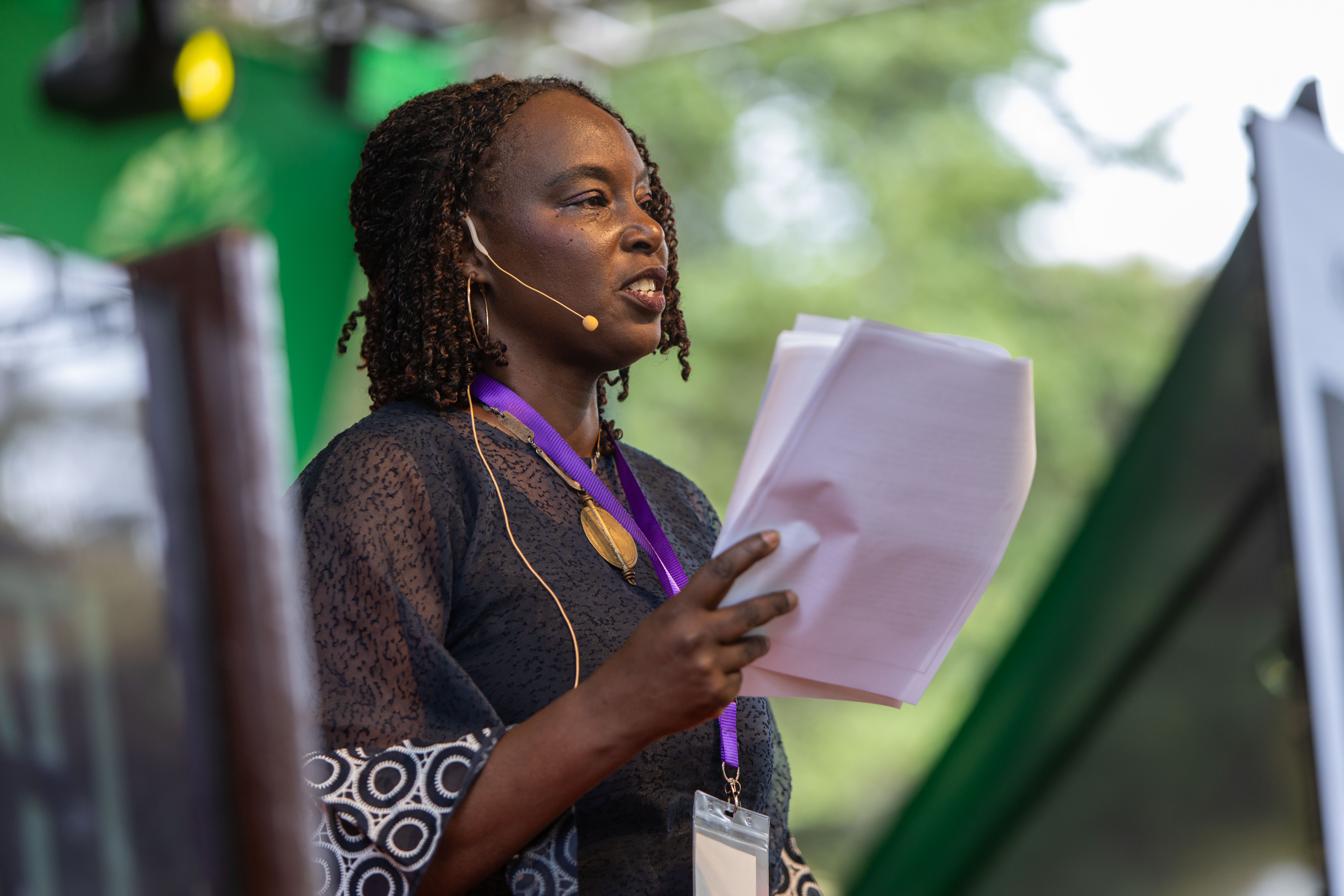 Keynote speaker and award-winning author Yvonne Adhiambo Owuor speaks during the Wakati Wetu Festivals on October 22, 2025. /HANDOUT
Keynote speaker and award-winning author Yvonne Adhiambo Owuor speaks during the Wakati Wetu Festivals on October 22, 2025. /HANDOUTThe tranquil gardens of Entim Sidai Wellness Sanctuary in Nairobi transformed into a stage of remembrance and renewal as Wakati Wetu: It’s Our Time—Africa’s first Reparations Festival—opened on Wednesday.
 The stage at the Wakati Wetu Festivals on October 22, 2025. /HANDOUT
The stage at the Wakati Wetu Festivals on October 22, 2025. /HANDOUTIt is convened by African Futures Lab, Baraza Media Lab, the AU ECOSOCC, and Reform Initiatives.
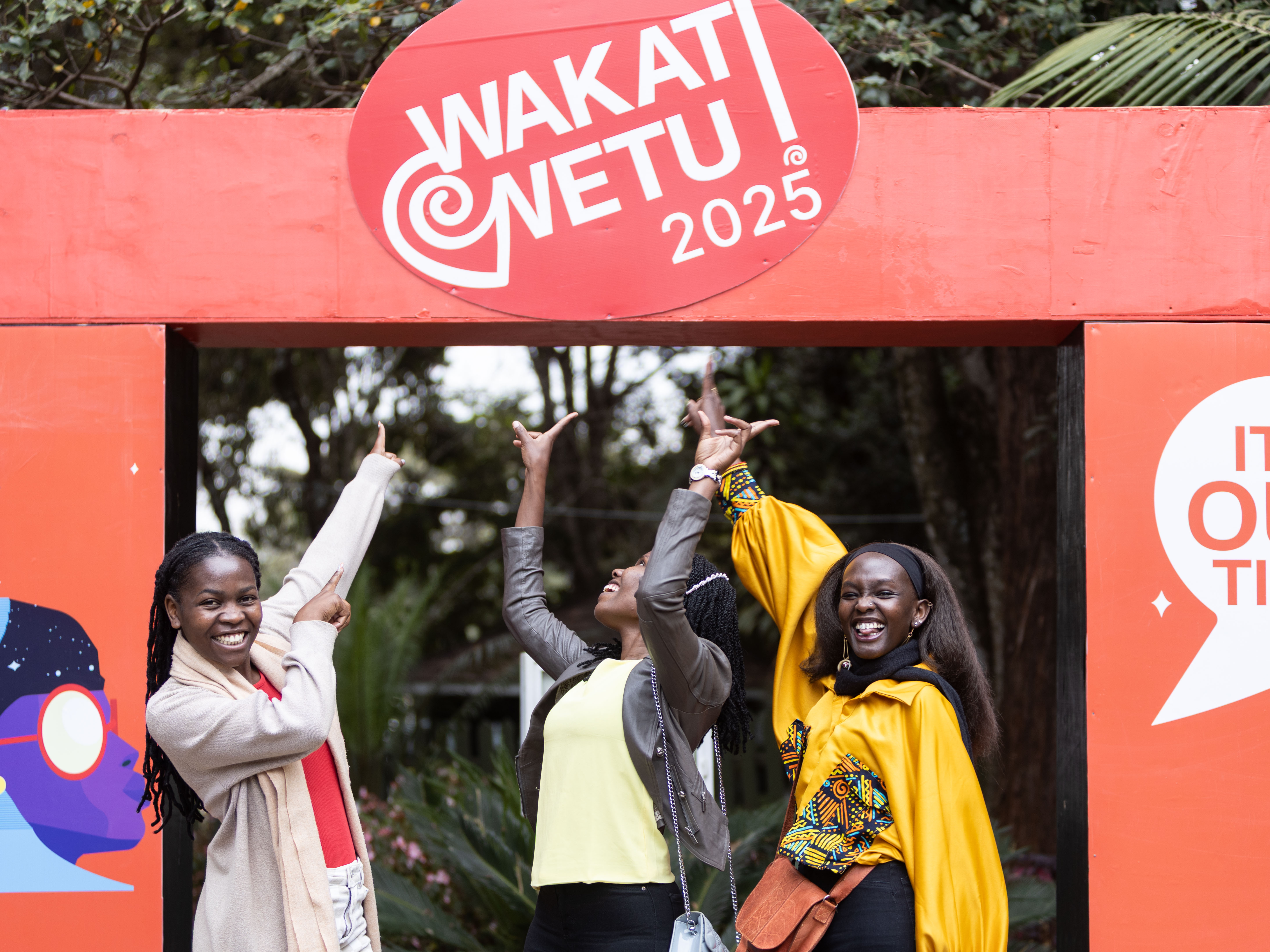 Attendees arrive for the Wakati Wetu Festivals on October 22, 2025. /HANDOUT
Attendees arrive for the Wakati Wetu Festivals on October 22, 2025. /HANDOUT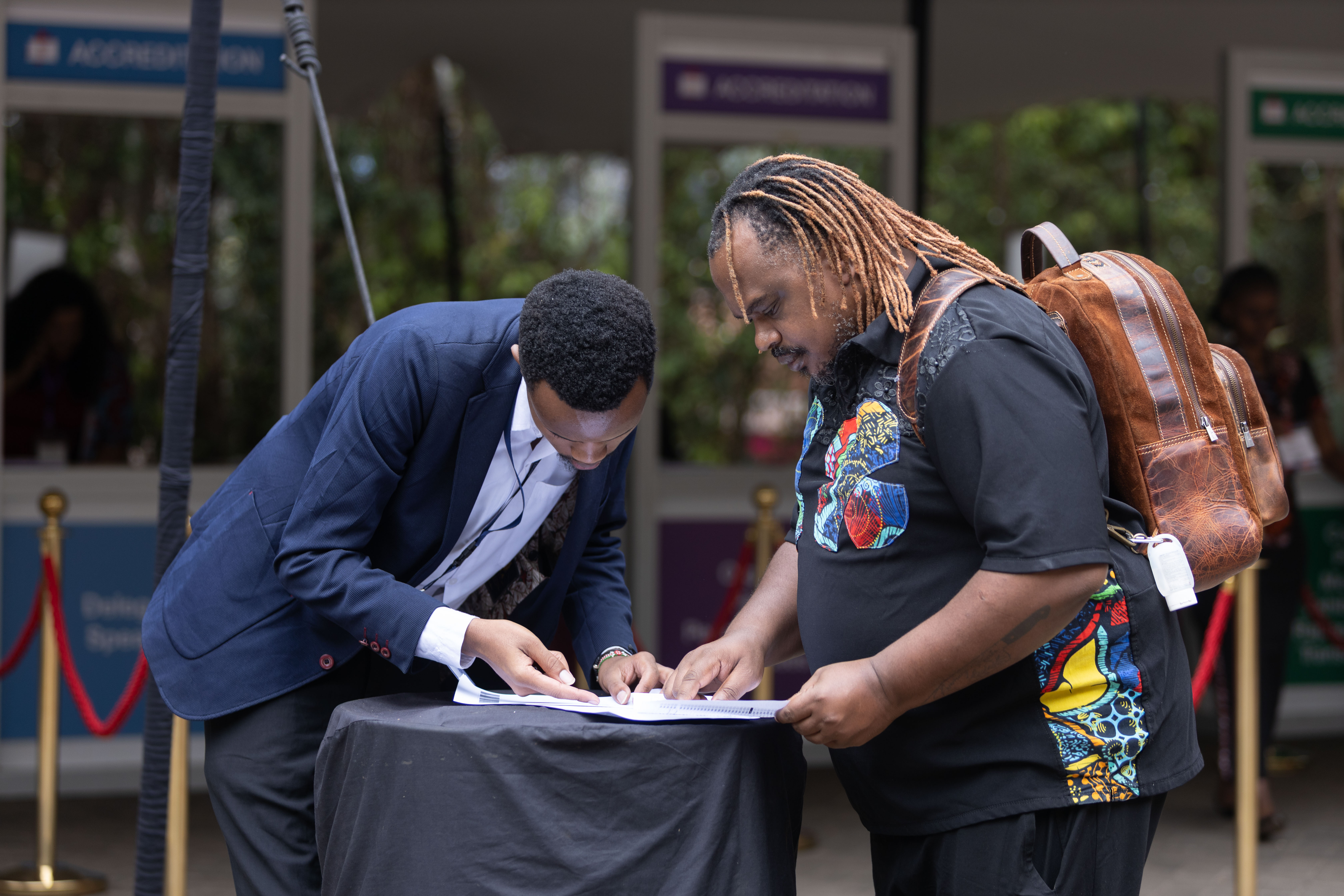 An attendee registers on arrival for the Wakati Wetu Festivals on October 22, 2025. /HANDOUT
An attendee registers on arrival for the Wakati Wetu Festivals on October 22, 2025. /HANDOUTKeynote speaker and award-winning author Yvonne Adhiambo Owuor opened the festival with a powerful reflection on the meaning of repair.
“Reparations is first an act of moral autopsy and then moral exorcism,” she said.
“There is no repair or healing without walking into, around, and naming the wound in its fullness.”
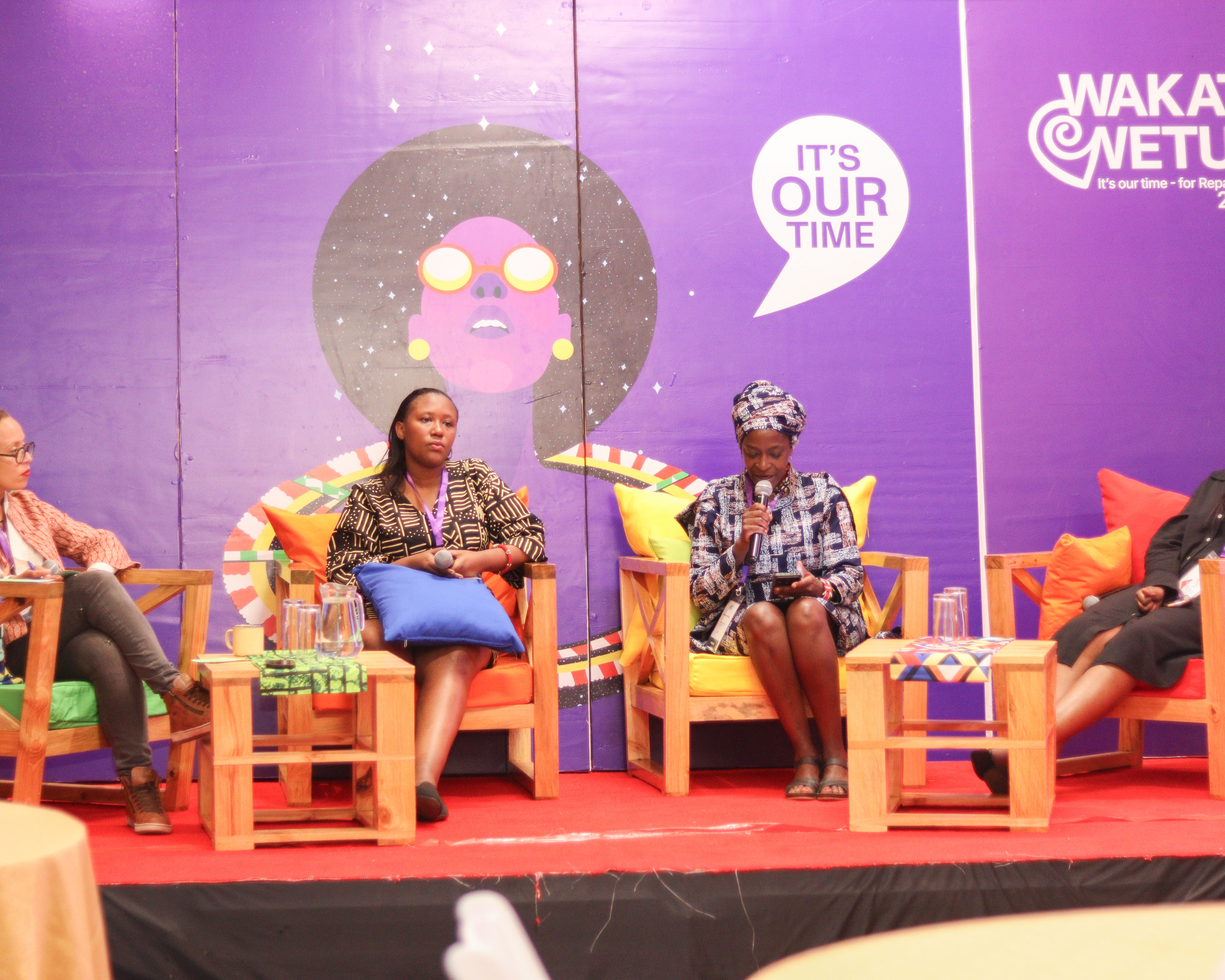 The panel during the roundtable session during the Wakati Wetu Festivals on October 22, 2025. /HANDOUT
The panel during the roundtable session during the Wakati Wetu Festivals on October 22, 2025. /HANDOUTHer address set a reflective tone, urging Africans to confront historical trauma with honesty and courage.
“Repair begins with the truth—to strip away all illusions so that what is being healed is the wound itself,” she said.
Dr Kathryn Nwajiaku-Dahou, Director of the Politics and Governance Programme, struck a personal note, quoting her father: “The cup that was meant for your lips will never pass you by.”
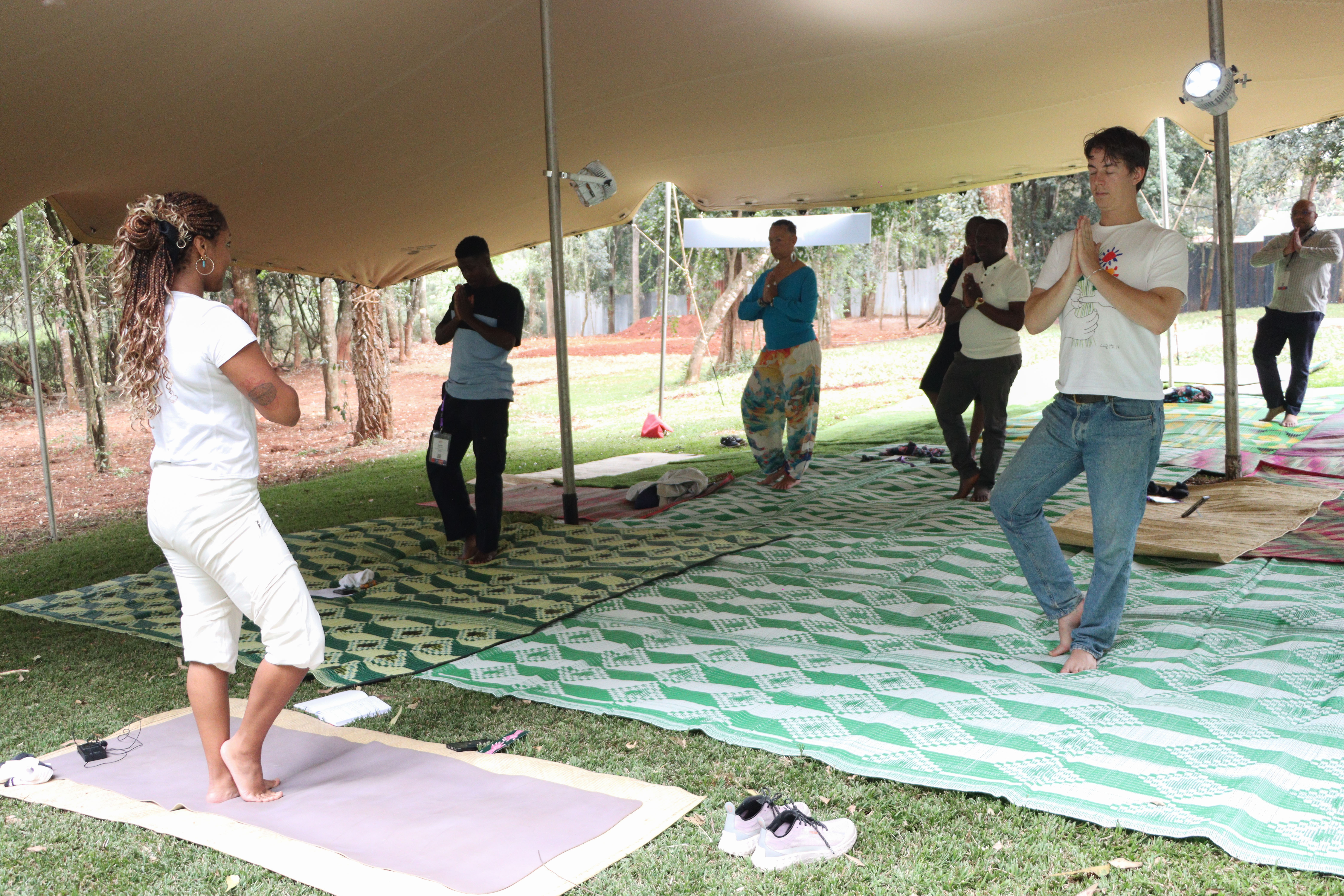 Participants having a moment of healing and meditation during the Wakati Wetu Festivals on October 22, 2025. /HANDOUT
Participants having a moment of healing and meditation during the Wakati Wetu Festivals on October 22, 2025. /HANDOUT“In order for reparations cases to succeed, the starting point is research—accurate records of who was who, who did what, with their names,” he said.
“Justice begins with truth.”
He reflected on the painful history of colonial atrocities and betrayal.
“The Mau Mau war broke out because all their efforts to get back their land were not successful. Britain responded with horrendous atrocities—torture, killings, detentions. And yet, even after independence, the third betrayal came—from those who took over power,” he said.
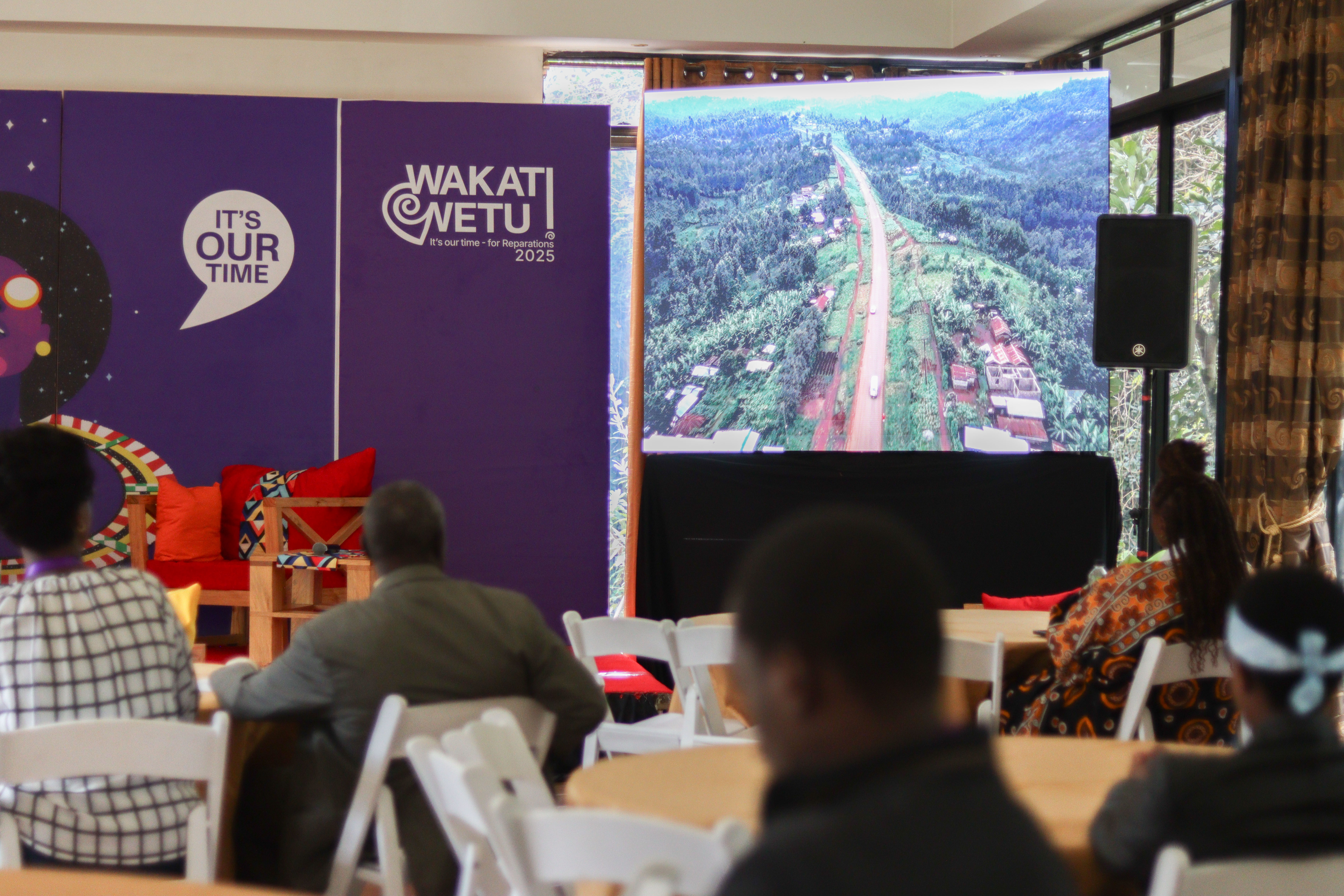 Participants watching a documentary during the Wakati Wetu Festivals on October 22, 2025./HANDOUT
Participants watching a documentary during the Wakati Wetu Festivals on October 22, 2025./HANDOUT“For the colonial project to succeed, it had to manufacture consent. Newspapers were the biggest tools of propaganda,” he said.
Media scholar Christine Mungai added, “For a journalist, it takes bravery to go against the grain—to resist conventions and tell stories that make power uncomfortable. That courage is part of repair.”
Philosopher Yoporeka Somet urged Africans to reconnect with their roots.
“You cannot talk about renaissance if you do not know your history,” he said.
Dr Natasha Shivji added: “The language of reparations is not simply a demand on the outside world; it is a demand on the state—to organise its people and organise history into a revolutionary platform.”
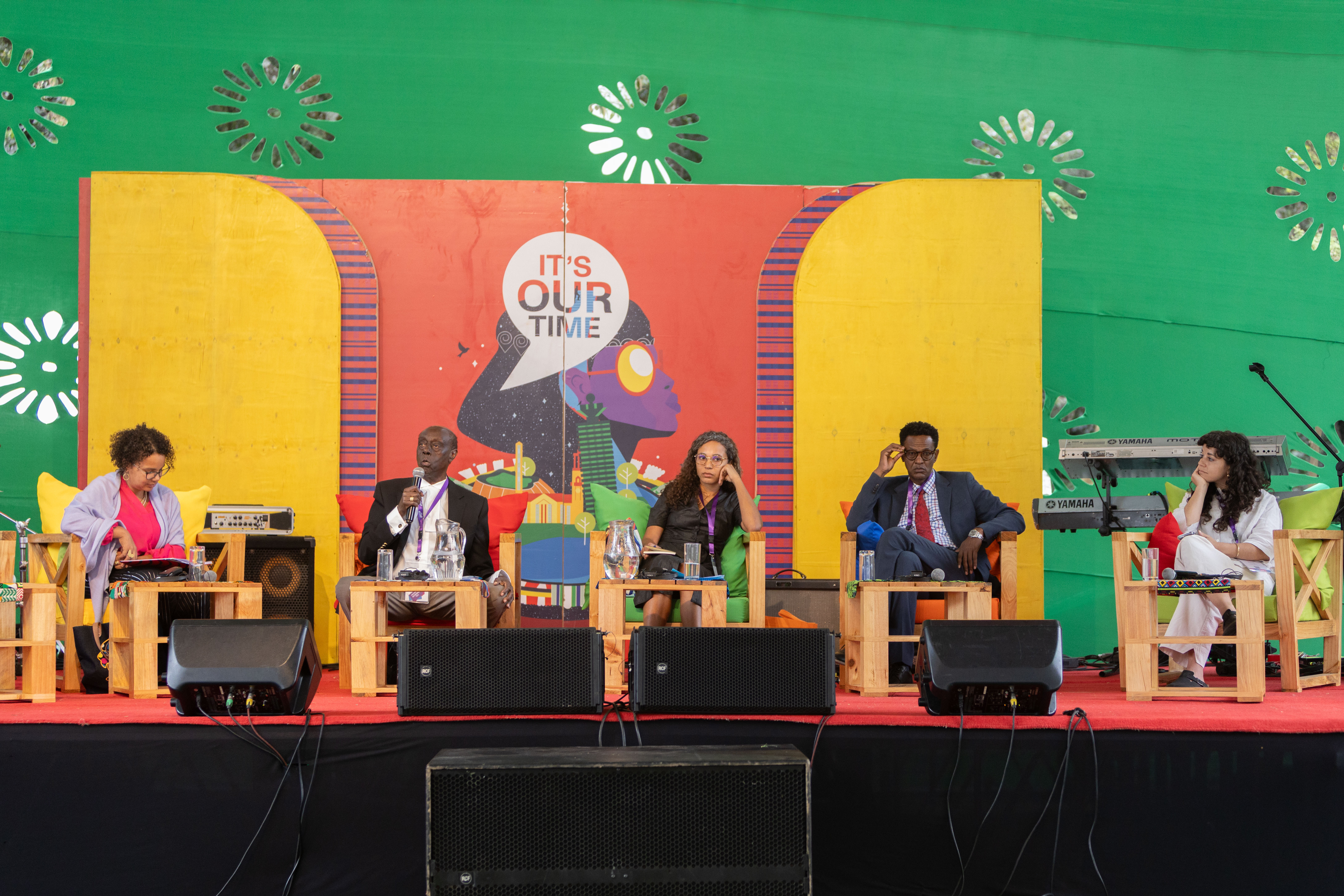 The panel during the litigation session at the Wakati Wetu Festivals on October 22, 2025. /HANDOUT
The panel during the litigation session at the Wakati Wetu Festivals on October 22, 2025. /HANDOUT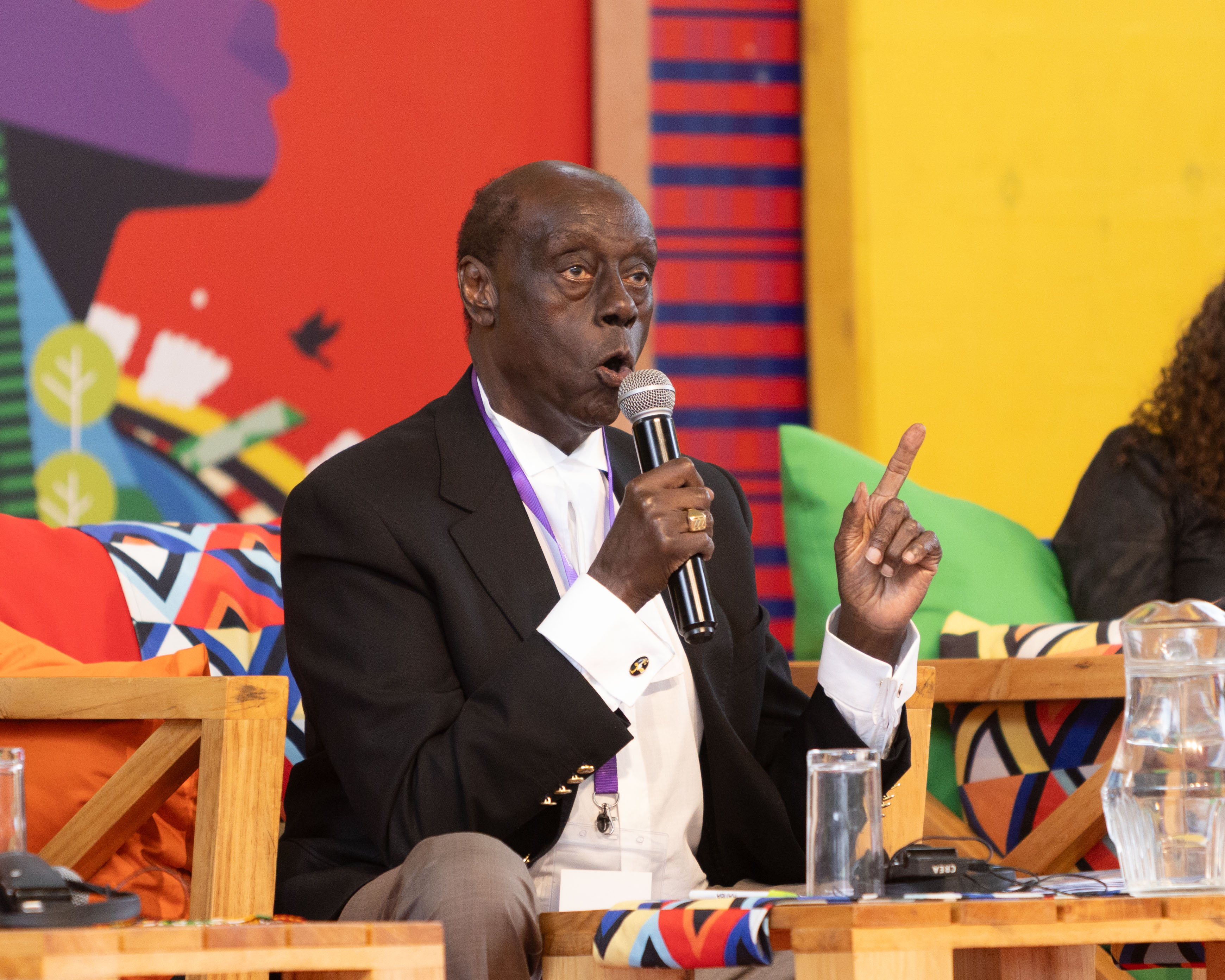 Senior Counsel Paul Muite speaks during the litigation session at the Wakati Wetu Festivals on October 22, 2025. /HANDOUT
Senior Counsel Paul Muite speaks during the litigation session at the Wakati Wetu Festivals on October 22, 2025. /HANDOUTPerformers included Eric Wainaina, DJ Talie, Koko Koseso, and NiK DJ, while screenings such as If Objects Could Speak explored the legacy of stolen African artefacts.
Festival convener Liliane Umubyeyi, Executive Director of the African Futures Lab, reminded participants that Wakati Wetu was both remembrance and rebirth.
“We are here because justice is both a political and cultural question. Our shared creation has the power to renew our understanding of our place in history. The time is truly ours. Ni Wakati Wetu!”
The festival continues through Thursday with sessions on tax justice, climate reparations, and gendered reparations. It will conclude with a closing address by Brian Kagoro titled “Vision for the Future.”
As Africa prepares for the African Union’s Decade of Reparations (2026–2036), Wakati Wetu marks a defining moment—when Africa stops pleading for justice and begins to define it.


